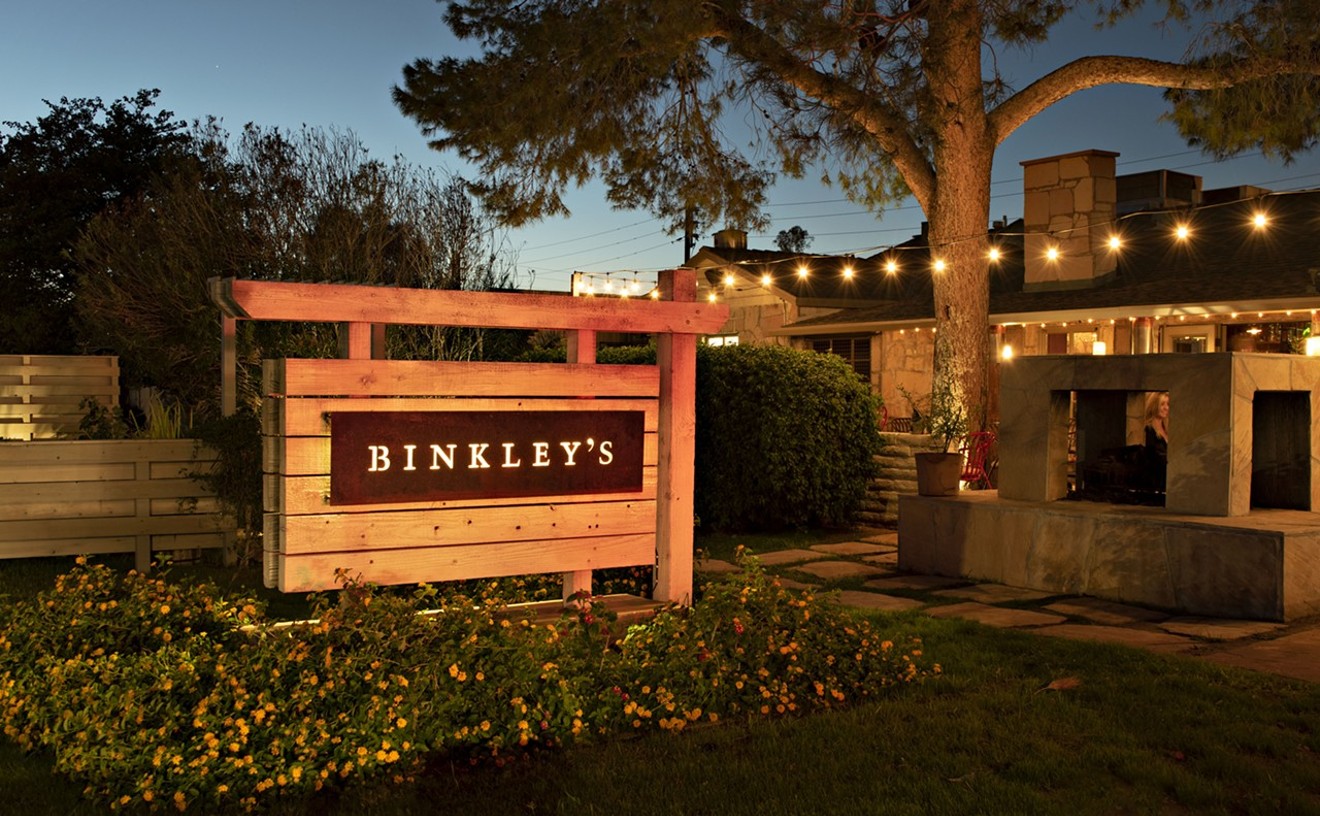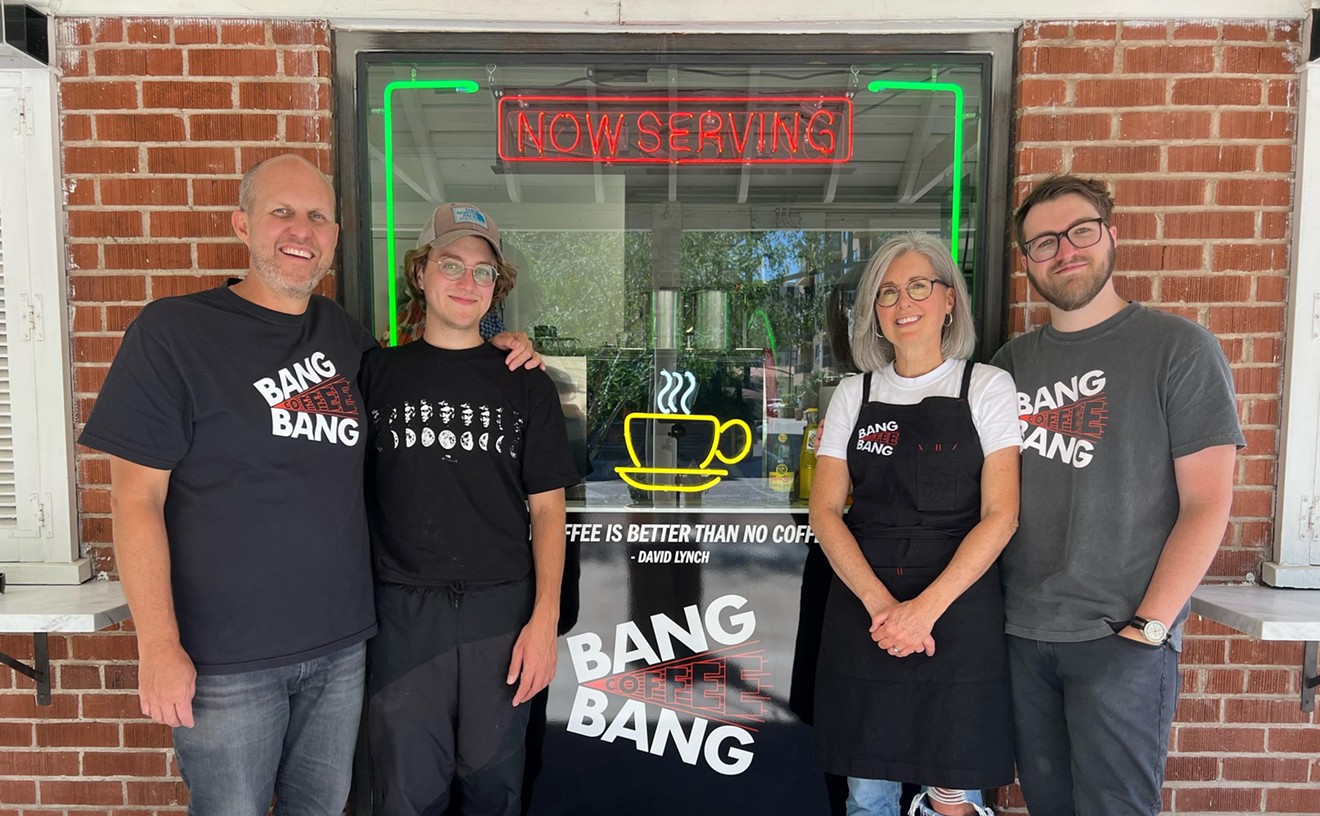Quite the opposite. The woman who has joined me for a nosh at Coronado Cafe is uncommonly friendly and upbeat. Indeed, she laughs more often, and harder, than anyone I've met in quite some time -- long, vigorous, full-throated, unabashed bursts of mirth. It's pleasant to note that the same voice that sings with such plangent beauty on albums such as Stories From the Blue Bus and The Absence of Moving is capable of happy sounds as well.
Maybe Cohn, who grew up in Washington state, is just glad to be back in the desert. She moved to L.A. in the early '80s, but later moved back to Seattle. "I missed my family, and it was time to leave California," she tells me as we wait for our lunches. "I just had some personal reasons why I needed to give myself some distance between me and someone else in L.A. But I miss L.A. a lot. I miss the desert. The desert is just such a more open place than the Pacific Northwest. People tend to be very shy and quiet and conservative there. I think it's the weather. . . . People tend to keep to themselves or their groups, while people in the desert communities are more open."
Though the singer-songwriter started touring, most often performing in Borders stores (where her CDs are sold), mainly as a way of financing visits to these desert climes she missed so much, it eventually grew into a full-fledged lifestyle. "Store managers who liked the music took an interest, and said, 'Oh, you should play this store, you should play this store,'" says Cohn.
Still Seattle-based, Cohn has drifted through the Valley, and thus often through the pages of New Times' Night & Day during the late '90s, as part of the long swings she makes through the Western U.S. in her van, usually accompanied only by her impressive teenage cat, Tosca. This weekend, she's slated to perform, with percussionist Michael Barsimanto, at the Borders on Camelback at 8 p.m. Friday, June 1, and at the Borders on Bell Road in Glendale at 8 p.m. Saturday, June 2.
What, I ask her, does such an itinerant lifestyle do to one's personal life? "I have no personal life," she says with a laugh. "I have a lot of friends I see on the road. I think I put a lot of emphasis on my personal life in my 20s, because everything I did didn't really work out. It made for really good songs . . ."
Suddenly Cohn stops herself, and offers a quick self-deprecation. "I shouldn't say 'made for really good songs' 'cause I don't know if my songs are really good, but it made for really good subject matter."
Her modest disclaimer done, she continues telling me how she came out of her muse-friendly dark days. "I think I made a switch when I realized I put all my energy into my personal life and couldn't effect any real change there, so I decided to put all my energy into my career, and see what kind of change I could effect there."
I assume what we're talking about, in terms of "personal life," is some endless, difficult, on-again-off-again relationship that lasted for years?
Pretty much, Cohn grants. "I think that was the biggest folly in my 20s was trying to find someone to connect my life with, instead of trying to connect with my own life, and then see who's around."
Our food arrives -- for Cohn, a large green salad; for me, a chicken caesar sandwich with fine, fresh white meat and a zingy, to-die-for dressing. As we dig in, Cohn grows reflective. "I think I was raised to believe that marriage and family was everything," she says. "And I think it is a huge part of the human experience. But my folks put a lot of emphasis on that, I think because they were married and divorced so many times, that I think they really wanted to impress upon us the importance of family. . . . So I spent all my 20s trying to make that a reality. And I tend now to have a different view, that you can do things to affect who you meet and when you meet them, but basically I think it's really up to fate. So my change in my 30s was to put all my effort into my career, and let the universe take care of the rest, and see what happens."
So, I ask this older-and-wiser Jill Cohn, what's her best survival tip for life on the road? She points to her salad. "Greens! Salad greens!" she says. "Going to the co-op rather than to McDonald's. That's survival number one when you're on the road -- eating really well." She says that Coronado Cafe's tasty fare falls well within this directive.
Just then, the server walks by, and discreetly sweeps away some sprouts that had fallen from Cohn's plate onto the table. Cohn thanks her, then leans close to my tape recorder and helpfully intones: "The waitress came and picked up some sprouts." I like this; a lunch guest who includes helpful third-person narration on the interview tape. "And Jill also salts her salad," Cohn continues into the recorder. "It's something she picked up from her older sister; it's really disgusting."
I've finished my sublime sandwich, and order a cherry cobbler for us to split for dessert. While we wait, Cohn picks at the remnants of her salad, and tells me about the road. Most people I know who must travel for their work claim they hate it, but Cohn insists that it's a source of delight. In branching out from Borders gigs, for instance, she's encountered startling generosity. "In San Luis Obispo," she recalls, "I was supposed to rent this community theater for 50 or 60 bucks, and these people refused to take my money! It was so sweet! I said, 'You guys, you're supposed to take it,' and they said, 'No, we're supposed to support the arts.'"
And the drive itself has its scenic joys. "I love the Four Corners, and I also love the Northern California coast. And there's this one expanse of drive, from Spanish Fork, Utah, where you can just see for miles, and I have this one tape that I always put on when I go through there. U2's Joshua Tree. That's my music for going into the canyonlands."
All at once Cohn leans close to her salad, and plucks something out -- she's found a hair. I point out that it's a long black hair, and in all likelihood one of hers. She nods, laughs, leans close to my recorder, and speaks once again for its benefit:
"We found a hair in the salad, but we think it's Jill's."










